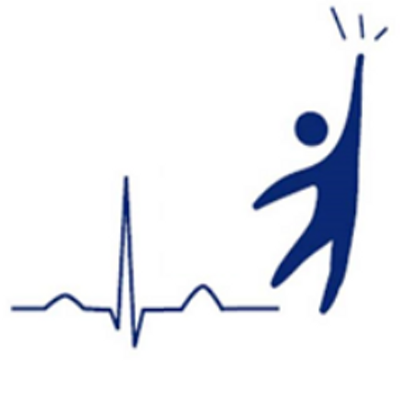Crack Cocaine Abuse Treatment Facilities Mosier OR
Home
Top Crack Cocaine Abuse Treatment Facilities Mosier OR Info
Crack Cocaine Abuse Treatment Facilities Mosier OR
These lists are based off of a set criteria that includes staff helpfulness, treatment success, customer experience, and accommodation. Have you lost the power of choice as to whether you can take it or leave it? If this individual is able to employ successful coping strategies, such as distracting himself from his cravings by turning on his favorite music, then he will avoid the relapse risk (PATH 1) and heighten his efficacy for future abstinence. He has been out for 2 years, it has not been … Is there some way I can get a family member off drugs? This is cocaine abuse.... he is out of touch with everyone in the family for a year and has left his wife 6 months ago... he is losing his business and … Wife addicted to pills? My wife age 48 has been addicted to all kinds of medications and just recently she got arrested because someone in HAWAII sent her Meds in the mail. I tried so hard to be a good parent, making their well being my number one concern. You will also see a decline in family and church activities.
Are they mixing within a different social circle and pulled away from long term friends? Different treatment options will vary depending on the drug and the level of addiction. Drugs ruin peoples lives, break up families and have disastrous effects on our communities. Why You Should Contact One of Our Christian Rehabilitation Centers If you are a Christian and you are currently fighting against addiction, then you know how trying this can be on your faith. Most programs that offer Christian treatment are set up for a length of 28 days with follow up in outpatient treatment once released from the christian addiction program. Undo Undo DRUG ADDICTION HELPâ€Â @help_addiction Apr 10 More Do you remember when you joined Twitter?
Right here are Some Even more Details on Amphetamine Rehab Hospital Near Me

Below are Some More Resources on Amphetamine Rehab Hospital Near Me Mosier OR
Once your inpatient treatment is complete, we do not say goodbye. The most effective way of treating drug addiction is found in the combination oftreatment medications and behavioral therapy.
Here are Some Even more Resources on Amphetamine Rehab Hospital Near Me
These core beliefs, such as "I am undesirable," activate a system of addictive beliefs that result in imagined anticipatory benefits of substance use and, consequentially, craving. In the end, they sold the couch.†― , Like “The Memory Of You Is Like A Drug To Me†― Like “What would you rather have?" "Cheeseburger and a small fry. When students embrace these concepts, the need for drugs and alcohol will be removed and they will be free to resume lives as happy, productive members of society. Not until the fix frees you.†― , Like “We all have those things that help us carry on through life.
More Information About Amphetamine Rehab Hospital Near Me Mosier OR
Relapse prevention[edit] An influential cognitive-behavioral approach to addiction recovery and therapy has been Alan Marlatt's (1985) Relapse Prevention approach.[34] Marlatt describes four psychosocial processes relevant to the addiction and relapse processes: self-efficacy, outcome expectancies, attributions of causality, and decision-making processes. Behavioral treatment, therefore, necessarily requires individuals to admit their addiction, renounce their former lifestyle, and seek a supportive social network who can help them remain sober. The first obstacle is to recognize and admit you have a problem, or listen to loved ones who are often better able to see the negative effects drug use is having on your life. I did a good job at beating myself up sometimes.†-Gary Oldman Drinking or using as a means of forgetting a traumatic event is a curse that many fall under. Do they frequently ask for money or has money or items of worth gone missing? Seeing and experiencing the world—to those who come to realize how foggy their minds were—is an amazing part of adhering to sobriety. “It was a slow process. Proposed models of affect-driven tobacco use have focused on negative reinforcement as the primary driving force for addiction; according to such theories, tobacco is used because it helps one escape from the undesirable effects of nicotine withdrawal or other negative moods.[38] Acceptance and commitment therapy (ACT), is showing evidence that it is effective in treating substance abuse, including the treatment of poly-substance abuse and cigarette smoking.[39][40] Mindfulness programs that encourage patients to be aware of their own experiences in the present moment and of emotions that arise from thoughts, appear to prevent impulsive/compulsive responses.[38][41] Research also indicates that mindfulness programs can reduce the consumption of substances such as alcohol, cocaine, amphetamines, marijuana, cigarettes and opiates.[41][42][43] Behavioral models[edit] Behavioral models make use of principles of functional analysis of drinking behavior.
Click Here for More Information
Previous Next
You may also like:
Campral Addiction Treatment Facilities Tryon NC
Dilaudid Rehab Facilities Ruskin NE
Amphetamine Addiction Detox Center Dansville NY
Hydrococet Addiction Treatment Clinic Guffey CO
Hydromorphone Addiction Rehab Facility Hayfield MN
Damason-p Addiction Detox Program Windsor Heights WV
Stilnox Rehab Facility Near Me Owen WI
Subutex Abuse Program Hutchinson MN
Ms Contin Addiction Programs Collinsville AL
Amytal Abuse Treatment Program Eastlake CO
Valium Addiction Centers Sula MT
Christian Drug Rehab Ranches Gwynneville IN
Rehab News Colver PA
Ryzolt Addiction Treatment Center South Fallsburg NY
Coricidin Addiction Clinic Hopeton OK
Benzos Rehab Programs Adamstown MD
K2 Addiction Program Cedar Lake MI
Duragesic Addiction Detox Clinics Signal Mountain TN
Marijuana Rehab Treatment Clinics Crocketts Bluff AR
Crack Cocaine Rehab Facility Near Me Morenci AZ